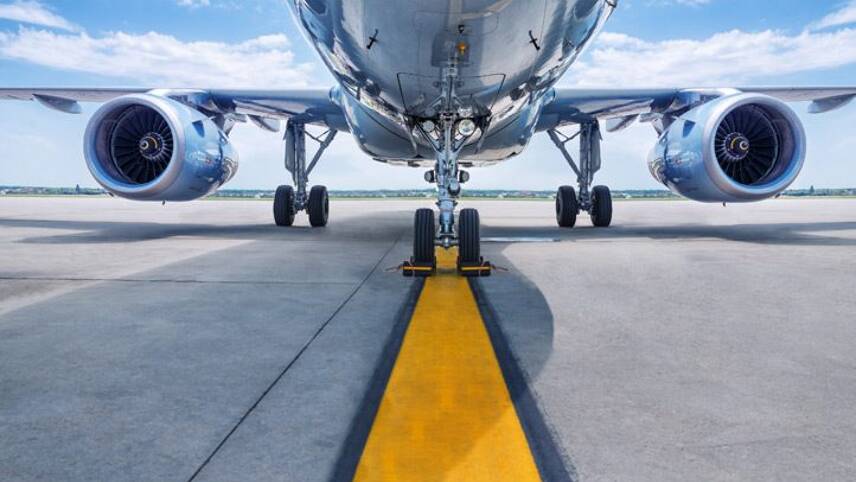Register for free and continue reading
Join our growing army of changemakers and get unlimited access to our premium content

The Government unveiled the new 10% target on Thursday (25 April), which is set to come into force in January 2025, subject to parliamentary approval.
Under the target, the Government estimates that 1.2m tonnes of sustainable aviation fuels (SAFs) will be supplied to the UK airline industry annually – enough to circle the globe 3,000 times. Proponents of SAFs state that the fuels can produce up to 70% less carbon emissions than the traditional fossil fuels used in most commercial flights.
Transport Secretary Mark Harper said: “Sustainable aviation fuel protects the future of UK aviation, the thousands of British jobs that depend on it, and the holidays and business travel flights that we all rely on.
“As part of our plan to grow the economy, the measures announced today will give both UK aviation and the UK SAF industry the certainty they need to keep creating skilled British jobs while giving passengers the freedom to continue travelling by air in a way that’s fit for the future.”
SAFs are currently more expensive than traditional jet fuel and the Government is eager to introduce measures that reduce costs in the long-term while protecting consumers. The plan includes review mechanisms to manage prices and ensure that the cost isn’t passed on to the consumer through increased ticket prices.
The Government also has the power to change key limits within the mandate to block higher price rises in the case of SAF shortages.
A consultation has also been launched to explore the feasibility of a SAF “revenue certainty scheme” that looks to ensure revenue is created from the sector and to funnel investment into new and existing solutions.
The Government believes that the SAF industry could add £1.8bn to the economy and create over 10,000 jobs across the country.
Trade bodies representing airlines have previously lambasted the UK and EU for introducing green fuel mandates without US-style subsidy support. In the EU, fuel suppliers will be mandated to ensure that 2% of fuel available at airports is SAF by 2025. This will increase gradually to 70% by 2050, with milestones including 6% in 2030 and 20% in 2035.
The Department for Transport (DfT) published its much-anticipated Jet-Zero Strategy in 2022 – a plan for aligning the aviation sector with the net-zero targets first outlined in its 2021 Transport Decarbonisation Plan. These are 2040 for airport operations in England and domestic flights in the UK, and 2050 for international flights.
The UK Government’s Jet-Zero Strategy focuses heavily on aircraft efficiency improvements and investing in alternative fuels.
Doubts over sustainability
Research from the Royal Society has warned that there is “no clear or single net-zero alternative to jet fuel” casting fresh doubts as to whether the UK’s focus on SAFs will enable the country to deliver its net-zero target for 2050.
Green groups are pointing out that, while the new announcement is welcome, runway growth and expansions will need to be limited or avoided, and that the Government and airlines need to identify exactly what sources are being used. Waste-based biofuels, from plastics or used oils, for example, can technically be badged under “sustainable” terminology.
Green Alliance’s senior policy adviser Johann Beckford said: “While carbon emissions are falling in most parts of the economy, in aviation they’re 88 per cent above 1990 levels, and reducing them means a lot of bets on new technologies will need to pay off. So it’s good to see the government take steps to phase out fossil fuel flying – and there’s a small but welcome nudge towards the cleanest ‘power to liquid’ fuels in its new plan, as we’ve recommended.
“But some replacements for kerosene aren’t actually sustainable – backing biofuels, for example, is a mistake when they’re highly polluting and they can’t be produced at the scale we need. Transport remains the highest emitting part of the UK economy, and given sustainable aviation fuels are just one part of the solution to that, it’s smart to take other small steps towards reducing emissions now, like closing the tax loophole on jet fuel.”


Please login or Register to leave a comment.